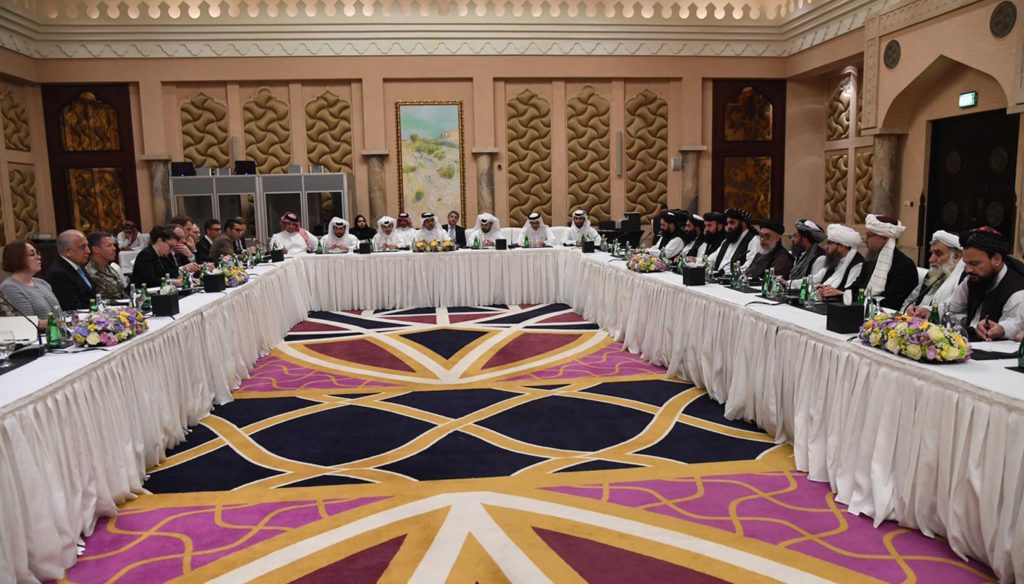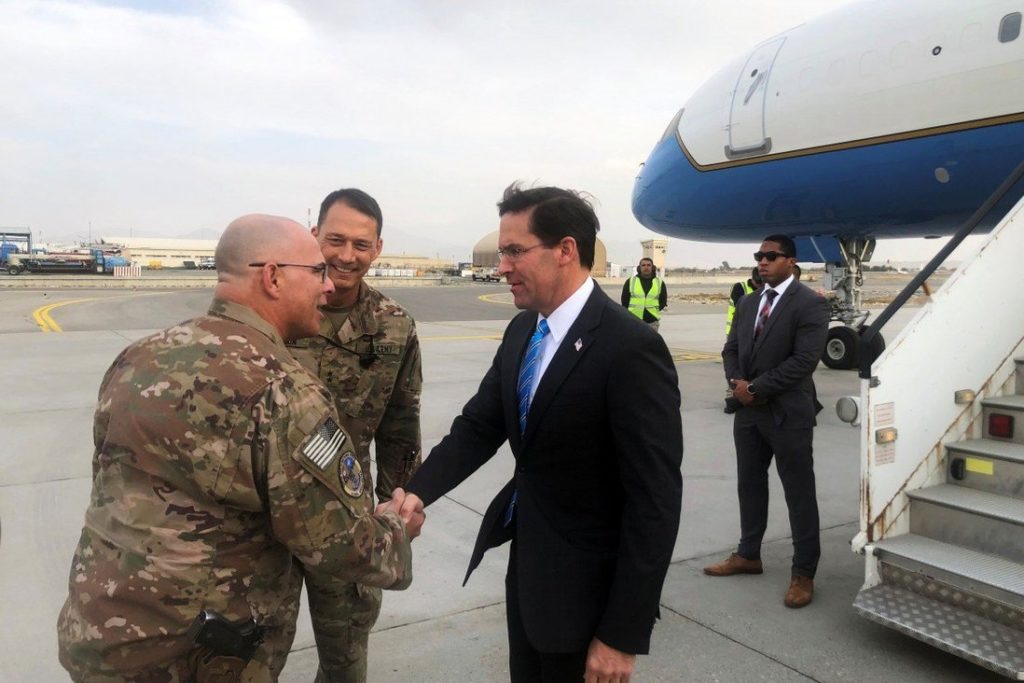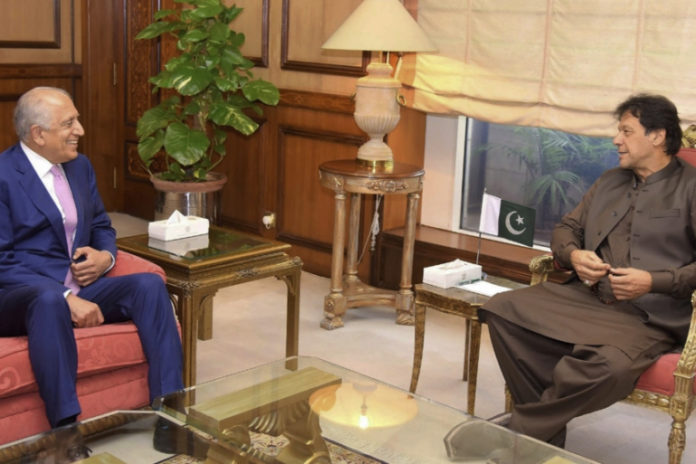American government is known for churning out country reports for furthering political objectives, which at times have nothing to do with the subject matter of such reports. Depending upon requirement, such reports are reversed engineered, the objective of the report is defined first and then data is cherry picked to fill in the content that serves as a lead towards preconceived objective(s). In this context country reports on Human Rights, Religious Freedom and Minorities issues are part of State Department’s handy toolbox. Poor credibility of such US reports is well known, thus these are not taken seriously. Such reports are non-binding. These dossiers are invariably rejected by the targeted countries when negative; and are praised when carrying positive comments. And the matter rests there.
On November 05, Pakistan expressed disappointment over a terrorism report published by the US Department of State and commented: “The report completely overlooks the factual situation on the ground and the tremendous contribution made and sacrifices rendered by Pakistan over the last two decades in the international struggle against terrorism,” said a statement released by the Foreign Office (FO) spokesperson.
The ‘Country Report on Terrorism 2018’ by the US State Department has stated that the government of Pakistan “failed to significantly limit Lashkar-e-Tayyiba (LeT) and Jaish-e-Mohammad (JeM) from raising money, recruiting, and training in Pakistan and allowed candidates overtly affiliated with LeT front organisations to contest the July general elections”. Report further said that Islamabad failed to implement significant action on Anti-Money laundering (AML) and Combating the Financing of Terrorism (CFT) regimes placed by the UN and hence, was placed on the Financial Action Task Force (FATF) grey list.
Pakistan has indeed taken extensive legal and administrative measures for the implementation of its obligations under the UNSC 1267 sanctions regime for the freezing of assets and denial of funds and economic resources to all designated entities and individuals”, and it is an ongoing process. Citing the positive role played by Islamabad towards the collective goal of Afghan peace, the Foreign Office maintained that “Pakistan’s positive contribution in this regard has been widely acknowledged, including by the US and its leadership. Any insinuation to the contrary is unwarranted and is inconsistent with the positive trajectory of the bilateral relations”.
Though the US report had noted that the Pakistan still faces the threat of terrorism from a number of groups including the TTP, JuA and ISKP; it, failed to mention that these groups continue to operate and conduct terrorist activities against Pakistan from across the Afghan and Indian borders. Over the years, such reports emanating from the US are increasingly furthering Indian narrative; even most of the phrases and terms can be traced back to the statements of Indian External Affairs Ministry. And any finger pointing towards Afghanistan in this context appears forbidden in such State Department authored reports. Because for all such acts of Afghanistan, the US being the leader of foreign military coalition occupying Afghanistan, bears at least indirect responsibility.
Pakistan has always stressed that global and regional counter-terrorism efforts can be effectively advanced through constructive engagement. Efforts by Pakistan have not only resulted in the elimination of Al Qaeda from this region, but have also made the world a safer place. Pakistan expects that its commitment, contributions and sacrifices would be fully recognized and appreciated in the right perspective.
Due to erratic behaviour by President Donald Trump, Afghan peace process is in disarray, and America wants Pakistan to coax Taliban to resume the overt contacts and agree to a lasting ceasefire. Peace process had ended on September 7 with US President Donald Trump tweeting that if the Taliban “cannot agree to a cease fire during these very important peace talks then they probably don’t have the power to negotiate a meaningful agreement anyway.” Currently, a new diplomatic push by the United States, China, Russia and Pakistan is aimed at reviving a process leading to a negotiated solution to the four-decade-old war in Afghanistan. Hence the repot under discussion has been floated to increase pressure on Pakistan.

The planned meeting between the Taliban and a delegation representing the Afghan society in China, later this month is a result of Pakistani efforts. However, Pakistan does not have abiding influence on Taliban, and this limitations need to be understood by the US. Moreover, Pakistan is not a party to the on going US led peace process, it is not participating even as an observer. Afghan peace process is to a shared responsibility of the international community; and more so of those countries which created and are sustaining the fiasco for reasons other than counter terrorism.
The US Special Envoy Zalmay Khalilzad has recently visited Islamabad and Kabul with the objective of restarting the peace process. Moreover, Defence Secretary Mark Esper and House Speaker Nancy Pelosi have also been to Kabul with an objective to prepare grounds for resuming negotiations with the Taliban. At the same time there is a bipartisan American objective to present, at least, a façade that the incumbent Afghan government won’t be abandoned like Syrian Kurds. Moreover, some elements think that Taliban’s’ current recognition, emanating from their direct talks with the US is mora then their actual on the ground influence, and that Taliban may not be able to deliver on their peace promises. However some pragmatic statements predict flexibility in the Taliban’s position with certainty. Ending of negotiations by Trump came as a blessing in disguise. It floated an opportunity to all parties for, an overdue, introspection. Many non Taliban Afghans had serious reservations over the US rushing to embrace and legitimize the Taliban while the latter are still stubbornly resorting to suicide attacks and other terrorist acts against the civilian population.
Some Afghans are not yet convinced that embracing the Taliban is a wise course. At the same time occupation forces continue with their deadly air attacks, resulting to a larger number of non-combat related casualties. Moreover, Zalmay Khalilzad has been stating, ad nauseam, that “nothing is agreed unless everything is agreed,” meaning that a US withdrawal is linked to counterterrorism guarantees by Taliban, a permanent ceasefire, and dialogue between the Taliban and the Afghan government.
However, later, this formulation was abandoned as the Doha process began to focus on two points: the withdrawal of US troops from Afghanistan and the Taliban’s commitment to denying space to the terrorists. Hence, the process became pivoted towards US withdrawal with fading mention of Afghan peace and reconciliation. One has to see if the intra Afghan dialogue and peace regain its due importance.

A robust push for peace in Afghanistan will need a stable Afghan government and functioning political system. The September 28 Afghan presidential election posed a special dilemma for both the US and the Taliban. In the run up to the vote, Washington appeared to prefer the formation of an interim government acceptable to all parties to the conflict over an election that, according to their thinking, could deepen hostilities between the Afghan government and the Taliban. After the collapse of talks with the Taliban, the U.S. joined the European Union and some other countries in supporting the vote as a means for strengthening the democratic process. The Taliban attempted to sabotage the process with attacks during campaigning and on the voting day. The election results are in a limbo, due to some ‘technical’ reasons but mainly due to political roadblock that could emerge out of making the results public. Strengthening an Afghan republic backed by most Afghans still remains an urgent priority, election results are unlikely to deliver on this objective.
Pakistan is committed to take concrete counter terrorism actions under its National Action Plan. Pakistan has taken extensive legal and administrative measures for implementation of its obligations under the UNSC 1267 sanctions regime for the freezing of assets and denial of funds and economic resources to all designated entities and individuals. Pakistan’s positive contribution in this regard has been widely acknowledged, including by the United States and its leadership. Any insinuation to the contrary is unwarranted and is inconsistent with the positive trajectory of the bilateral relations.
A lot more needs to be done by the US State Departments to build momentum towards a sustainable Afghan peace process that could resolve the conflict between the Afghan government and the Taliban and engage the Afghan government for ending its subversive interference in neighbouring countries especially Pakistan. However, the US doesn’t want to do its part and wants to arm-twist Taliban via Pakistan. Churning out fabricated reports and demeaning articulation by the US against Pakistan has not served the purpose of counter terrorism since 9/11, not it is likely to serve such purpose in future.




